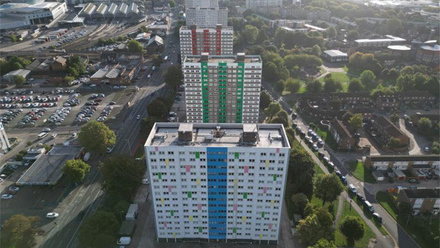The Chancellor giveth, the Chancellor taketh away...
After weeks of speculation, and chaotic scenes following the early publication of some budget documents, the actual announcements are a bit muted.
There has been no large increase in tax rates, although tax thresholds will be frozen for longer. Nor are there large-scale new taxes on wealth, though a council tax surcharge on properties over £2 million and an increase in tax rates for earnings from property, investments and dividends nod in that direction. Even scrapping the two-child benefit cap, which could have been a "rabbit out of the hat", was leaked several weeks ago.
For industry, the picture is similar. Employers will pay more as a result of increases in the national minimum wage and national living wage, but they will benefit from further skills and infrastructure investment, with SMEs in particular benefitting from fully funded training for apprentices under 25 years old.
For the built environment, investment is largely unchanged from the Comprehensive Spending Review, though greater detail has been provided on some spending plans, such as the Integrated Settlements to Mayoral Strategic Authorities, which will include allowances for spending on affordable housing. There is also further funding to increase the training of planning officials.
One of the biggest changes is the cutting of the Energy Company Obligation (ECO), which was again trailed before the budget. This, combined with government directly financing 75% of the Renewables Obligation, will see average energy prices drop around £150. Importantly, around 89% of these savings will be on electricity bills, making it cheaper for households that switch to clean, efficient heating systems such as air-source heat pumps. While any reduction in funding for home energy improvements is regrettable., the cuts to ECO (which was due to end in 2026 anyway) are partly offset by a £1.5 billion increase in funding for the Warm Homes Plan, softening the blow. It will be imperative that the Warm Homes Plan now fills the gap with long-term consistent funding to support improvements in home energy efficiency, quality and health.
All told, it's hard to get particularly excited about a budget where the Chancellor gives with the right hand and takes away with the left. But given the context and the rumours beforehand, it could have been a lot worse for the built environment sector.
CIAT President, Usman Yaqub PCIAT, said:
Within a tight fiscal envelope, it is great to see that the Government remains committed to tackling the UK's housing crisis by delivering the high-quality, safe and healthy homes our communities need. It's particularly important to see further investment in workforce skills, which are key to delivering the future built environment.
We also welcome the decision to reduce Green Levies on electricity, while broadly sustaining overall funding through an expanded Warm Homes Programme. It's essential that we make it cheaper to heat homes with efficient, clean and sustainable technology such as air-source heat pumps, and this change will support that transition.
Further information can be found in this summary of key budget measures, or by emailing [email protected]





